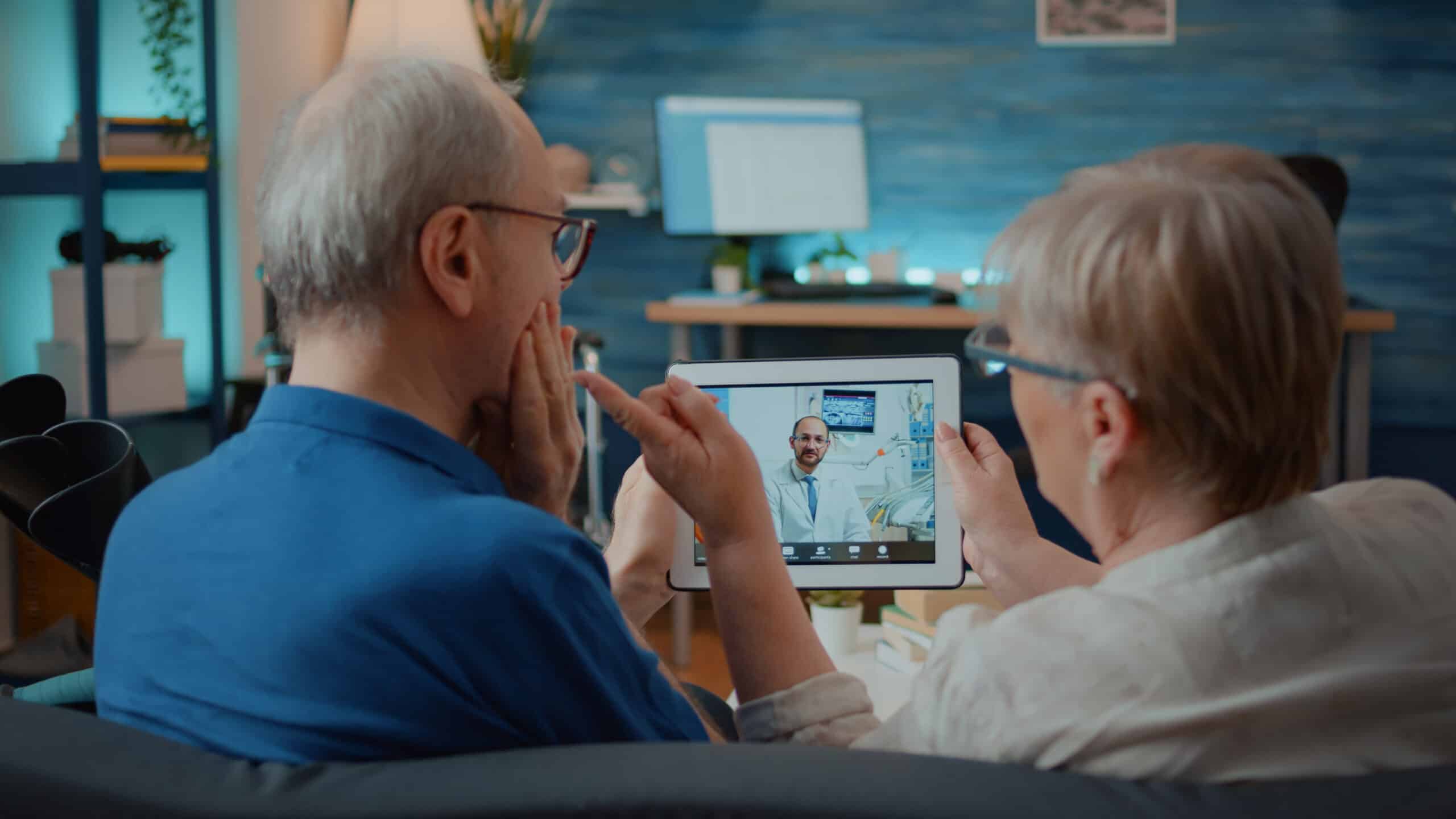📍 Healthcare Technology Is Elevating At-Home Care
A New Era of Home-Based Healthcare
Healthcare is no longer confined to hospitals or clinics. Thanks to futuristic technology, patients can now receive quality care without stepping out of their homes. From smartwatches tracking your heart rate to virtual doctors diagnosing your flu, the future is literally at your fingertips.
Why This Shift Matters
Let’s face it—no one enjoys long waiting room lines, especially when they’re unwell. With rising costs and aging populations, at-home care isn’t just a trend; it’s becoming a necessity. And tech is stepping up to fill the gap.
💻 Telemedicine: Future Healthcare Technology Is Elevating At-Home Care
Virtual Doctor Visits Made Easy
No need to drive across town anymore. Video consultations let you talk to your doctor in real-time, from your couch. All you need is a smartphone or laptop.
Real-Time Monitoring and Diagnosis
Modern telehealth tools let doctors track your vitals live—heart rate, blood pressure, even oxygen levels—making it possible to diagnose and monitor chronic conditions remotely.
Enhanced Access in Remote Areas
People living in remote or underserved regions can now access healthcare professionals without the burden of travel. It’s leveling the playing field.
⌚ Wearable Health Tech Devices
Smartwatches and Fitness Trackers
Gone are the days when watches just told time. Now they count steps, monitor sleep, and alert you when your heart rate spikes.
ECG Monitors and Blood Pressure Devices
Advanced wearables now provide electrocardiograms (ECGs) and track your blood pressure. They’re FDA-approved and getting more accurate by the day.
Continuous Glucose Monitoring for Diabetics
Imagine never needing to prick your finger again. Continuous Glucose Monitors (CGMs) offer real-time glucose tracking through a tiny sensor placed on your skin.
🧠 AI-Powered Healthcare Tools
AI Chatbots for Initial Diagnosis
Feeling under the weather? AI chatbots like Ada and Babylon can evaluate your symptoms and suggest next steps—all without a human on the other side.
Predictive Analytics to Prevent Complications
AI doesn’t just react—it predicts. By analyzing your health trends, AI tools can alert you or your doctor before something becomes serious.
📡 Remote Patient Monitoring (RPM) Systems
What RPM Means for Chronic Disease Management
For patients with heart conditions or diabetes, constant monitoring can be life-saving. RPM systems collect health data and send it directly to healthcare providers.
Devices That Report Vital Signs Instantly
These devices can track everything from oxygen levels to ECGs, and they immediately notify care teams if anything’s off.
🔗 Internet of Medical Things (IoMT)
What IoMT Means in Home Settings
IoMT is like the Internet of Things but for healthcare. Think smart devices talking to each other—your blood pressure monitor syncing with your doctor’s app, for example.
Real-Life Applications of Connected Devices
Imagine your toilet analyzing urine for health markers, or your mirror checking your skin for signs of disease. It’s not sci-fi; it’s already in beta testing.
🤖 Robotics in At-Home Healthcare
Robotic Companions for the Elderly
Robots like ElliQ and Paro offer companionship, reminders, and even emergency alerts. They’re especially useful for seniors living alone.
Robots That Assist in Physical Therapy
Automated tools can now help patients with rehabilitation exercises, ensuring they’re done correctly and consistently.
📱 Mobile Health Apps
Medication Tracking and Reminders
Apps like Medisafe send alerts to take your pills on time. No more forgetting or double-dosing.
AI Coaching and Virtual Therapists
Apps like Wysa or Woebot use AI to offer mental health support and daily emotional check-ins, right from your phone.
🧬 Personalized Treatment Through Genomics
DNA Testing at Home
Companies like 23andMe or AncestryHealth offer DNA kits you use at home. The results? Insights into your genetic predispositions.
Tailored Health Plans Based on Your Genes
Once your DNA is mapped, doctors can create health plans that are specific to you, not just your demographic.
🏠 Smart Home Integration and Healthcare Technology Is Elevating At-Home Care
Voice Assistants Monitoring Wellness
Alexa and Google Assistant now come with health-related features. They can remind you to take meds, track symptoms, or even call emergency services.
Home Automation for Disabled or Elderly
Smart door locks, voice-controlled lights, fall detection sensors—these tools make daily life easier and safer for those with mobility issues.
🧘 Mental Health and Technology
Therapy Through Apps and VR
Virtual reality therapy is being used to treat PTSD, anxiety, and phobias. Imagine facing your fears in a safe, controlled virtual world.
At-Home Stress Management Tools
From calming light settings to guided meditation via apps, managing mental well-being at home has never been easier.
🔒 Data Security VS Healthcare Technology Is Elevating At-Home Care
Protecting Patient Data with Blockchain
With health data flowing through devices and networks, security is critical. Blockchain offers tamper-proof systems to store patient records safely.
GDPR and HIPAA Compliance in Remote Solutions
Companies must follow strict data laws like HIPAA (U.S.) and GDPR (EU) to ensure your info doesn’t fall into the wrong hands.
✅ Benefits of Future Tech in Home Care
Comfort and Convenience
You stay in your familiar environment, surrounded by loved ones, not sterile hospital rooms.
Cost-Effectiveness and Resource Optimization
Healthcare Technology Is Elevating At-Home Care to reduces hospital stays and costs less in the long run—for both patients and providers.
🚧 Challenges That Still Need to Be Addressed
Digital Literacy and Access
Not everyone knows how to use advanced tech. Plus, some areas still lack proper internet coverage.
Infrastructure and Network Issues
These innovations need strong, secure networks. Without them, the whole system can fall apart.
🔮 The Road Ahead
The Future of Patient-Centric Care
The shift to home-based care isn’t slowing down. With more tech, better access, and smarter systems, the future of healthcare is right where you live—at home.
🔚 Conclusion
Future Healthcare Technology Is Elevating At-Home Care. From telemedicine and wearable devices to AI and smart homes, the possibilities are endless. As these technologies continue to evolve, they promise not just longer lives—but better ones, right from the comfort of our own homes.
❓FAQs
1. What is the role of AI in at-home healthcare?
AI helps in early diagnosis, monitoring, and even mental health support, making healthcare more proactive than reactive.
2. Are wearable devices accurate enough for medical use?
Yes, many wearables are FDA-approved and provide reliable health data, especially when used under medical guidance.
3. How secure is telemedicine?
When providers follow HIPAA/GDPR standards and use encrypted platforms, telemedicine is highly secure.
4. Can smart homes really monitor my health?
Absolutely. With sensors, voice assistants, and connected devices, smart homes can support everything from medication reminders to fall detection.
5. What is the biggest challenge in at-home healthcare tech?
Digital literacy and reliable internet access remain major hurdles, especially in rural or underserved communities.





